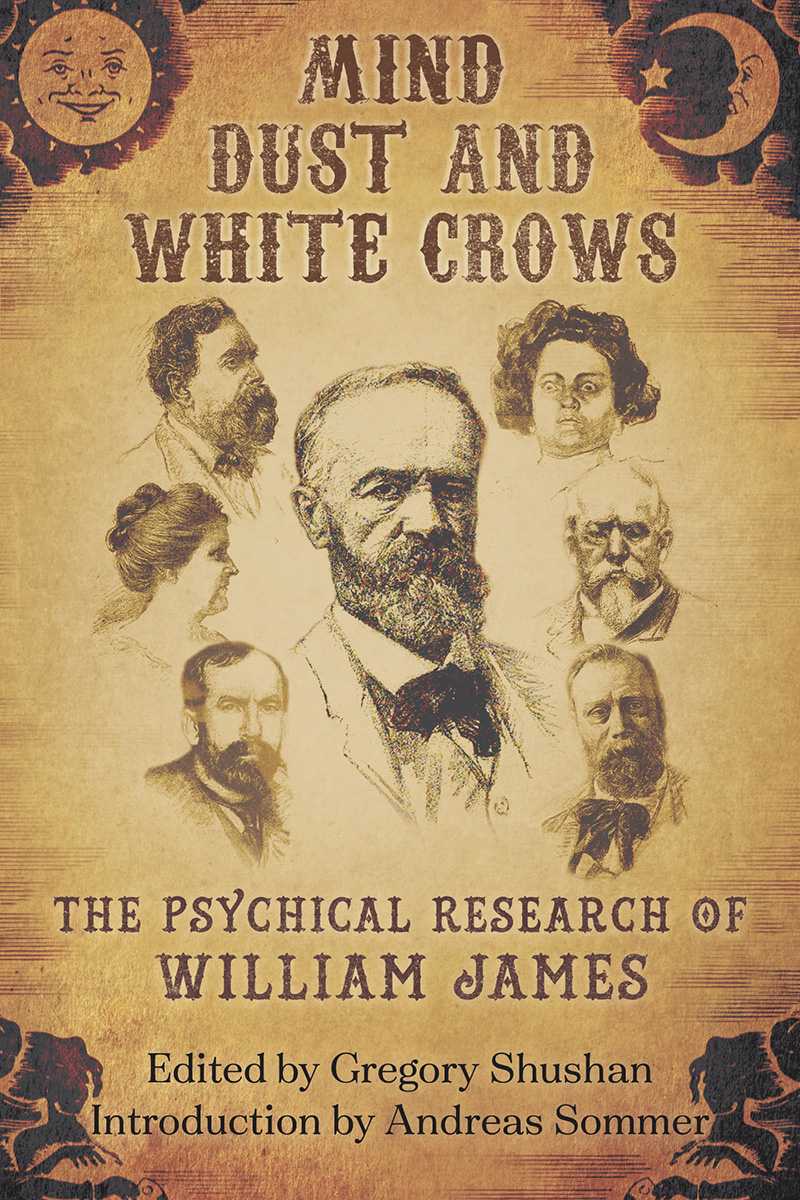Summary
“If you wish to upset the law that all crows are black, you mustn’t seek to show that no crows are; it is enough if you prove one single crow to be white.”
William James (1842–1910) was a leading figure in Western psychology, philosophy, and psychical research. While there is an inextricable relationship between the various strands of James’s work, his psychical research has been unfairly neglected in favor of classics such as The Principles of Psychology and The Varieties of Religious Experience. Read in light of one another, however, James’s “mainstream” writings can be seen as efforts to make philosophical, metaphysical, and psychological sense of his psychical research.
Mind Dust and White Crows bridges the illusory divide, placing James’s widely accepted works on mystical experience, theories of the soul, immortality, and metaphysics alongside his key writings on mediumship, telepathy, possession and other areas of psychical research. The result is a more integrated picture of James’s spiritually-minded writings, transcending the disciplinary stigmas so often imposed on them. Interestingly, some of James’s ideas seem to align with current interpretations of the soul and extended consciousness as derived from quantum physics.
This volume includes many rare articles, including material that has not been previously published in book form. Andreas Sommer’s introduction – written especially for this volume – highlights the importance of James’s work to the history and development of psychical research.

